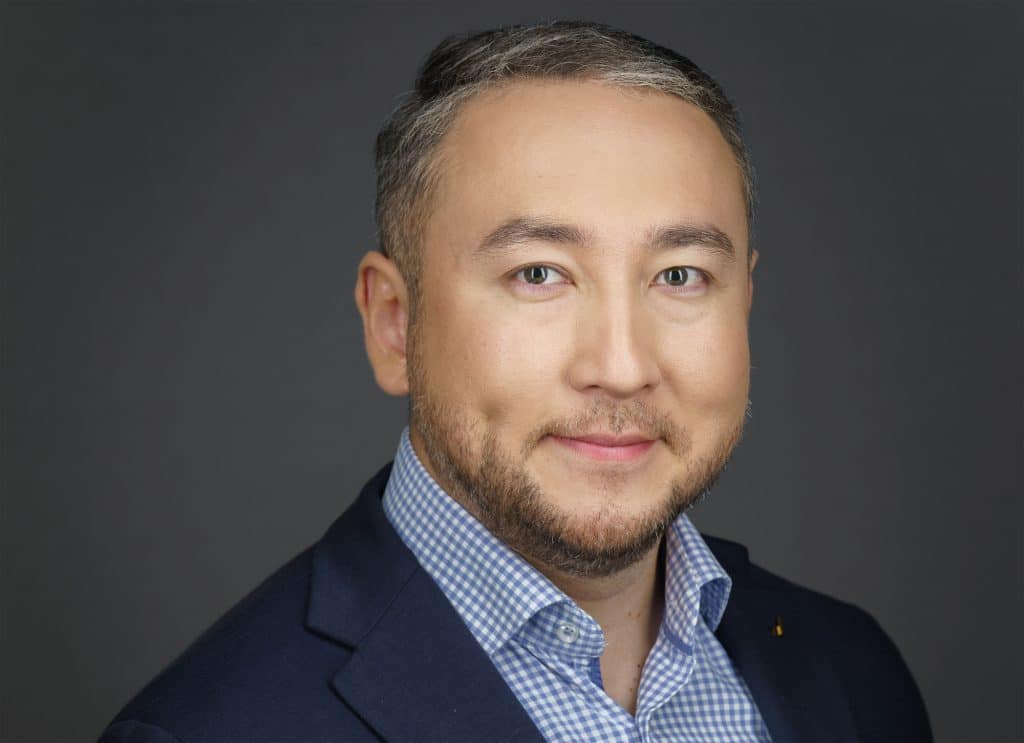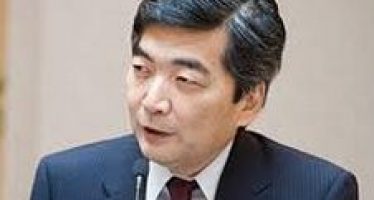Jusan Bank’s Nurdaulet Aidossov: Deep Fintech and Telecom Collaboration
‘We have built a golden digital bridge between business and retail client,’ says Jusan Bank CEO Nurdaulet Aidossov.

CEO: Nurdaulet Aidossov
Banking and financial services came early into every Kazakhstani’s life. No wonder, then, that the sector there is advancing by leaps and bounds.
Consumers’ lives have been made easier with newly developed products and services. Just a few years ago, citizens could not even imagine that an app could be used to buy a TV or air tickets in instalments, get into the shares market, or get a mobile service aside from a simple transfer or loan repayment.
CFI.co spoke to the CEO of Jusan Bank, Nurdaulet Aidossov, to get his vision of the present, and the future, of innovative services and products.
“Loving my job is the key point for me,” he says. “Passion greatly energises and motivates me to look for game-changing solutions — and drives business processes. Outstanding results cannot be reached without motivation.”
Over the years, Aidossov has learned to find experienced and talented staff — and differentiate between them. They could be completely different people, he says. “I believe that the experience so expected from the labour market is no longer crucial. An employment history may be long, but in a rapidly changing world, some of that experience may not be relevant. “But skills are of the utmost importance: being able to adapt to new realities, to be open to innovation, and to switch between tasks. All of these things are above simple experience. Skills rock.”
Nurdaulet Aidossov would rather put his faith in skills than experience. “These two drivers, the passion for work and skills, are typically more essential than the experience — and even education. I am by no means undervaluing the education. You need to have ongoing training and upskilling to enhance your competence and forge a successful career.
“To my mind, the classical education approach that you study your major and deepen that is fading. The future is in hybrid occupations.” Being a good accountant is not enough today, he believes. “You need to know IT, financial analytics and so forth for service providers to engineer information systems and gain an insight of what can be refined and fine-tuned.”
A law officer who knows and understands how a financial system works can give more sound and relevant advice, he says. As a specialist engaged in the financial sector, he believes that finances are the most forward-looking economic realm, “constantly masterminding ground-breaking reinventions — with the fintech trends factored-in”.
An open mind and the ability to tinker and produce fresh ideas are needed to understand data-driven decisions. “Our business is no place for emotion-driven or illogical decisions,” Nurdaulet Aidossov says. “Everything should be underpinned by sound analytics. That is the key to success.”
Financial services and banking affect all lives in 2022, and banks should promote welfare, save time for clients, and support endeavours and projects that make dreams come true, he believes. “We influence people’s lives, and that is a great responsibility. It’s no coincidence that our motto is: ‘Believing in you and creating opportunities for you’.”
By helping SMEs to digitalise and provide access to products and services can be using a single Jusan application. “We have built a golden digital bridge between business and retail client. I see how efficient the business-bank-client model is, where the bank lends its shoulder to both parties. The process should be as seamless as possible.”
Besides financial services, the bank holds financial awareness courses in-house via the Jusan Academy, where you will gain basic knowledge of the stock market fundamentals and investment methods. You also learn how to diversify your investment correctly, how to choose securities to buy and many other useful skills. “Our mission is to contribute to a better quality of life for our clients.”
“People should take an interest in the bank’s health — not just ours, but that of any financial institution. They should ask how promptly services are delivered, and whether there are additional services to be had.
“As we have moved beyond routine banking, they should ask each ecosystem can offer. As well as the normal deposits, cards, transfers, and loans, we offer mobile service — free to our cardholders — insurance, investments, travel, entertainment, education, all accessible through our mobile app. Our clients can reliably cover most of their demands with a single tap while benefiting from the products synergy.”
He intends to expand the Jusan ecosystem to specific products to suit the specific needs. “We should focus on current client demands — not as a bank, but as an ecosystem, making equal space for online and offline services.
“We are shaping a universal banking model that includes classic banking and neo-banking services where our client is the boss. I think that the future lies in an ecosystem-based approach, mainstream fintech, and telecoms and banking permeation. Mobile communications and banking are almost the same — the clients receive banking services through smartphones.
Kazakhstan has good internet and banking services, he is pleased to report. “The future is in a greater collaboration of the fintech and telecoms. We already have the OGO Project, enabling a telecoms service-provider with an client base to provide our services as a ‘white label’: accepting payments, transfers and deposits and granting loans. Banks go for telecoms as MVNOs (mobile virtual network operators). And this collaboration will get stronger.”
Aidossov is “at one” with Kazakhstan’s regulatory authority. It employs the latest approaches to banking legislation. “We do not feel like our sector is over- or under-regulated. I think we are in tune with the times and the proposed legislative innovations and amendments are reasonable, and fairly conservative.
“It is critical to address challenges, adapt, and arrive at solutions under relevant laws. Kazakhstani laws are quite advanced and meet all the current and future market issues. We comply with the international AML standards and are accredited by many international institutions. Some more advanced countries lack such progressive legislation.”
His inspiration comes from other experts and co-workers. “Someone inspired me, another set a task that I worked hard to get done. I admire thought-leaders and successful people from various fields beyond the banking world.”
Nurdaulet Aidossov sees his role as “the 12th man on the football field” — and he doesn’t believe in micromanagement. “I should have all information, be involved in all processes, see the bigger picture, and be able to avoid time-wasting.” His leaderships style is about understanding products and client needs, and encouraging passionate and idea-driven employees. He also values constructive criticism. “A team should always be diversified: that is the way to solid performance.”
He knows that mistakes come with experience, and says he has made some of his own — but “not fatal, show-stopper” errors. “I became a bank CEO at quite a young age, and I have nothing to regret. So far…”
Jusan puts an emphasis on the work-life balance. “It is about the quality, or focus, of time, not its quantity. In my life, my hobby, my passion and my growth are all tied to my occupation. There was no single day that I dragged myself to work. I have always been motivated, and accept all complex and critical moments as a challenge.”
You may have an interest in also reading…
Frontier Asia and Hopes for More Inclusive Growth
The International Monetary Fund (IMF) and the Japan International Cooperation Agency (JICA) on January 28th held a conference in Bangkok,
Financial Centres Promote Economic Development: AIFC Goes for Growth by Backing SMEs Globally
International Financial Centres (IFCs) are a necessary component of national and global economic growth. And increasingly, it is co-operation between
UNCDF: Time to ‘Youth-Up’ – the Status Quo Simply Has to Be Adjusted
“It’s time to sustainably invest in youth affairs and future generations”, argues Edoardo Tancioni. As the world grapples with conflict,















































































